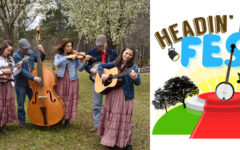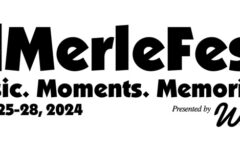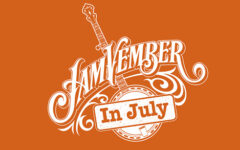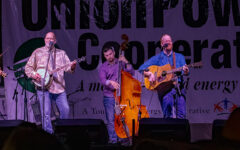
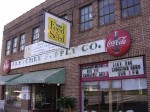 One of the most satisfying things about doing a radio show like LocalGrass Radio is the ability to introduce the world to great local bands and performers that would otherwise go unheard outside their geographic region. Sometimes the star of the show is not a performer at all, but a venue. One such venue is Fletcher, North Carolina’s very own Feed & Seed.
One of the most satisfying things about doing a radio show like LocalGrass Radio is the ability to introduce the world to great local bands and performers that would otherwise go unheard outside their geographic region. Sometimes the star of the show is not a performer at all, but a venue. One such venue is Fletcher, North Carolina’s very own Feed & Seed.
Most bluegrass fans in western parts of the Tar Heel state have likely visited, or at least heard of, Feed & Seed. For anyone unfamiliar with this storied venue, sit a spell and read how an abandoned storefront became, as Southern Living magazine put it, “one of the top ten places in North Carolina to hear bluegrass music.”
Built in 1919, the building was the home of Fletcher Supply Company. Fletcher Supply served as a hardware store with a feed mill where farmers would bring their corn for grinding. The 3-story brick building with its solid oak hardwood floors and hammered tin ceilings became Fletcher’s center of activity. As times changed, cities and towns started to move away from the downtown area and businesses like Fletcher Supply Company were becoming extinct. At one time or another the old building has been home to everything from a butcher shop to a TV repair shop. That is, until something special happened.
Phillip Trees, a local pastor from Fletcher, had a church but no church home. Mr. Trees and his congregation were meeting in a park located across the street from the old (now abandoned) Fletcher Supply Company. One day while driving past the old store, he noticed it was for sale. He immediately called the 90 year old owner of the building and explained to him that he would love to rent the place, clean it up and use it as a home for his church. They made a deal but Phillip Trees’ main concern was that he and his congregation would get the building (complete with “5000 pounds of broken TV’s”) cleaned out in time for a buyer to come along.
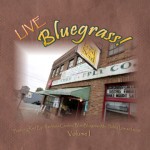
The owner assured Mr. Trees that he wouldn’t let that happen and immediately removed the For Sale sign from the window and took the building off the market. A few days later a buyer came along with nearly three quarters of a million dollars. The potential buyer was told, “No thanks, we’ve got a church in there now.” It took them a year to finally get the building cleaned up and back in good condition.
Once they began the church services, Phillip Trees started playing his acoustic guitar on Sunday mornings. That’s when he noticed this 100 year old building had phenomenal acoustics. He decided to open the doors to the community on a Saturday night and invite a bluegrass band to come in and perform. That wasn’t an easy task. Bands thought there must be an angle. “It’s a church, there had to be a catch!” Nothing could have been farther from the truth.
Being a bluegrass fan himself, Pastor Trees really wanted a bluegrass band to perform and invite everyone to listen. No cover charge, no tricks, no catch. Just come in and have a great time. He finally convinced the Redeye Ramblers from nearby Asheville to play, becoming the first band to perform at what has since become known as Feed & Seed.
The venue has become so popular that it’s booked up for several months in advance. From the start, audiences marveled at the sound in the converted building, but the sterling acoustical properties of the room were something of a mystery. People could hear beautifully, but the reasons for such great sounds was left unexplained. Folks started calling the building “The Little Ryman.”
Besides the acoustics and the packed house of eager bluegrass fans, another of the major drawing cards was that Feed & Seed is run as a listening room. There are no loud-mouthed patrons, and no one getting out of line. The folks applaud when they hear something they like, but they come to listen and to enjoy the bluegrass.
City Folks (Carolina Blue): [http://traffic.libsyn.com/thegrasscast/City_Folks.mp3]
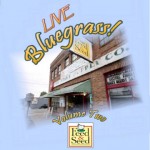 The shows are free, with bands agreeing to come and play for donations. Phillip Trees explained that it’s set up that way to make it fair for everyone. If someone wanted to bring the family but can’t afford to buy tickets at a set price, they normally wouldn’t come. By only taking donations, they can give whatever they can afford.
The shows are free, with bands agreeing to come and play for donations. Phillip Trees explained that it’s set up that way to make it fair for everyone. If someone wanted to bring the family but can’t afford to buy tickets at a set price, they normally wouldn’t come. By only taking donations, they can give whatever they can afford.
Every show is digitally recorded through the soundboard. The Trees family has released 2 CD’s of live recordings from the Feed & Seed stage appropriately titled Live Bluegrass Volumes 1 & 2.
The bands chosen to appear on the CD are honored to lend their talents. Each member gets a copy, with the profit from the sale of CD’s going to pay the rent and for equipment.
Nellie Kane (Carolina Blue): [http://traffic.libsyn.com/thegrasscast/Nelly_Cane.mp3]
Perhaps the most interesting part of the story would be how this hardware store happened to be such a natural concert hall. Back in 1919, an inventor was trying to get a patent for a brick laying machine. That very machine was used to lay the bricks on the south facing wall of the old Fletcher Supply Company.
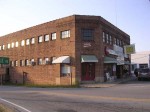 But there was a problem with this new machine that caused it to get out of alignment. When the south facing wall was complete, they noticed it was sitting at an angle. Of course they wanted the front wall, which would be on Main Street, to be lined up with the street, so a fifth wall (approx. 6 feet wide) was built with a set of double doors. That way the front wall would be square and lined up with the rest of the buildings downtown.
But there was a problem with this new machine that caused it to get out of alignment. When the south facing wall was complete, they noticed it was sitting at an angle. Of course they wanted the front wall, which would be on Main Street, to be lined up with the street, so a fifth wall (approx. 6 feet wide) was built with a set of double doors. That way the front wall would be square and lined up with the rest of the buildings downtown.
Sound engineers who had been working at a nearby DVD and CD manufacturing plant visited the venue to investigate the acoustics. They surveyed the structure of the building and believe that the acoustical properties are the result of the Feed & Seed being a five-sided room.
Get Down On Your Knees (Carolina Blue): [http://traffic.libsyn.com/thegrasscast/get_down_on_your_knees.mp3]
With a colorful past and a bright future ahead, the story of the old building that started out as a feed mill and hardware store goes to prove that everything happens for a reason. Today an engineer trying to design a studio might slave over AutoCAD for weeks trying to design in the desired acoustics, when all they really need to do is find a hundred year old brick laying machine and get started!
The venue’s schedule, live performance CD releases, Live Bluegrass Volumes 1 and 2, and booking information can be found at the Feed & Seed website.

